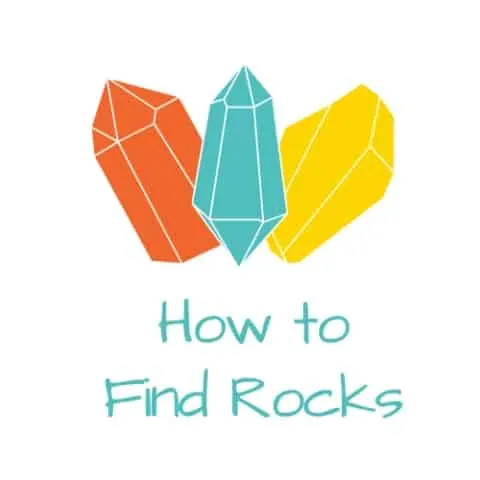As an Amazon Associate, I earn from qualifying purchases with no additional costs for you.
People become geologists and geoscientists because of their love and appreciation of nature. Geology is a multidisciplinary sphere where people should know many topics, like physics, chemistry, biology, ecology, and math. A crucial part of geology is field trips for sample collection or observations.
To become a geologist, you need a complete graduate education (5-6 years), which costs $50,000-180,000 depending on the school, sometimes an additional license or certificate (depending on the region), and knowledge in natural sciences, including physics, chemistry, and math with a passion for traveling.
Geologists have fun! Sometimes, as a joke, geologists are called paid tourists. This is because of the constant field trips. Even the years in college or university are considered one of the most exciting among all the other student educational programs.
Geology (commonly called geoscience or Earth science) students have classes outside very often. These are lectures at the seaside, deep into the wood, making notes sitting on a log or a boulder, under the heating sun, or being stuck in the quarry because of rain.
In this article, we would like to share all our knowledge on becoming a geologist, the best schools, time and costs, skills you need to be a professional, and what geologists do daily. Let’s have fun as geologists do!
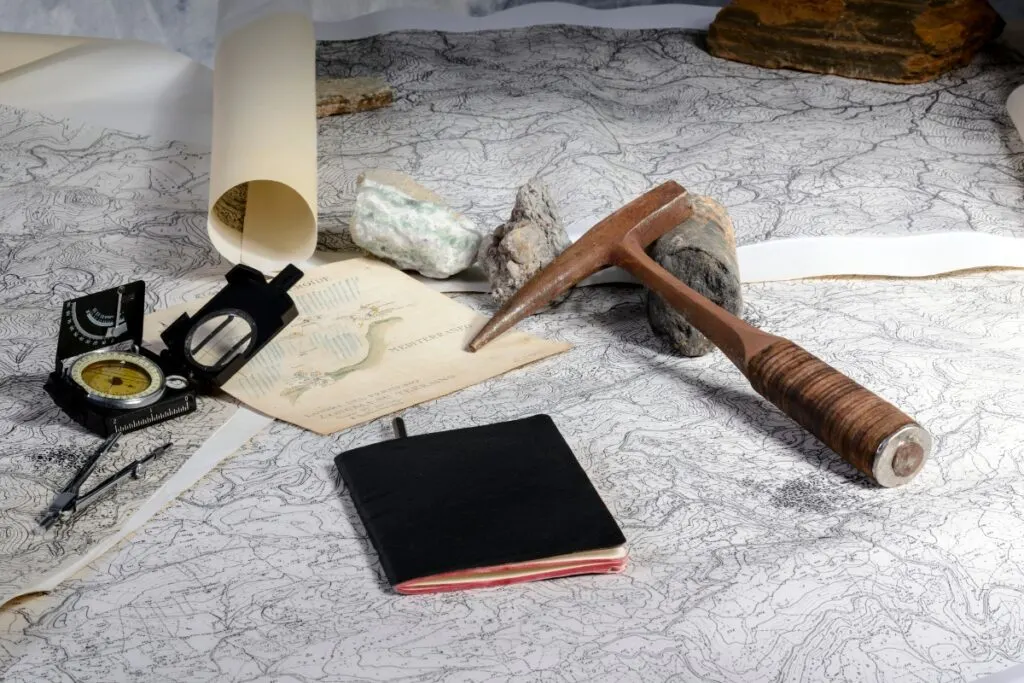
If you are interested in checking out the best books about rock and minerals identification you can find them by clicking here (Amazon link).
What Does a Geologist Do
Geologist is a broad term for people who can do many jobs like economic geologist, engineering geologist, petroleum geologist, marine geologist, mineralogist, volcanologist, geochemist, etc. Geologists find and explore mineral resources, make environmental impact assessments, or do science.
A very typical stereotype about geologists is about a person who is constantly somewhere in the mountains in dirty clothes digging for precious stones. Nowadays, that’s not true at all. Like people from any other sphere, modern geologists spend more time with computers than with a hammer or shovel.
Geology is now also a very computerized and technology-related field. You will undoubtedly feel the romantic allure of fieldwork during your studies. Still, in most cases, after promotion, you will spend more time near a computer.
What a geologist does also strongly depends on the specialization and types of geologist occupation. There are three principal directions where geologists can work:
- Government agencies. Government agencies hire geologists and related geoscientists to investigate, plan and evaluate construction sites and mineral resources extraction, meet environmental policies, and comply with government regulations.
- Private companies. This is the broadest sphere where any geologist and geoscientist find its position. Private companies hire geologists to help locate natural resources (minerals, oil, gas, water) and to develop a strategy for their extraction and refinement.
- Non-profit and academic institutions. Geologists, who prefer an academic career, work as scientists and researchers in universities, museums, or geological surveys.
There are many types of geologists and other geology-related geoscientists depending on the specialization and the type of material they study. Here is a detailed list of geology-based professions and their task.
- Environmental geologists study human impact on the Earth system.
- Economic geologists explore for and develop Earth’s resources (ores, minerals, oil)
- Engineering geologists study geologic factors affecting the operation and maintenance processes before and during the extraction and refinement of minerals.
- Marine geologists study a seafloor from a geological point of view and work in close interaction with oceanographers, marine ecologists, and engineering geologists when mineral extraction takes place from beneath the sea.
- Mineralogists study the processes of mineral origin and formation, chemical composition and physical properties of minerals, their distribution, and their utilization.
- Volcanologists study the lifecycles of the volcanoes and apply their knowledge to hazard prediction and maintenance.
- Geochemists study the chemical makeup and behavior of chemical elements in various types of environments that find their application in environmental spheres,
- Hydrogeologists study groundwater’s origin, occurrence, and movement in subsurface geological systems.
- Petrologists study rocks and their formation, composition, and alteration processes from micro to planetary scales.
- Paleontologists study dinosaurs! – you may say. That is partly true. Paleontologists study fossils and model their entire life cycle and the environmental conditions they lived in to construct a palaeontological history of the Earth.
- Pedologists study soil, its formation, and evolution and find its application in agriculture.
- Seismologists study earthquakes and active seismological zones to predict and maintain geological hazards.
- Data scientists in Earth sciences is a relatively new sphere of geosciences to work with data obtained during research end observations and model various earth sciences processes, and make predictions based on significant data clusters.
- Petroleum geologists study sedimentary basins and sedimentary rocks to search for and explore hydrocarbons (oil and gas).
- Geophysicists apply physical methods such as gravity, seismicity, electricity, and magnetic properties to study the Earth’s interior and to help with mineral exploration.
BTW: Do you want to know more about rock and mineral identification? The books listed below are the best ones you can find on the internet (Amazon links):
- Smithsonian Handbooks: Rocks & Minerals
- Gemstone & Crystal Properties (Quick Study Home)
- Ultimate Explorer Field Guide: Rocks and Minerals (National Geographic Kids)
How to Become Geologist
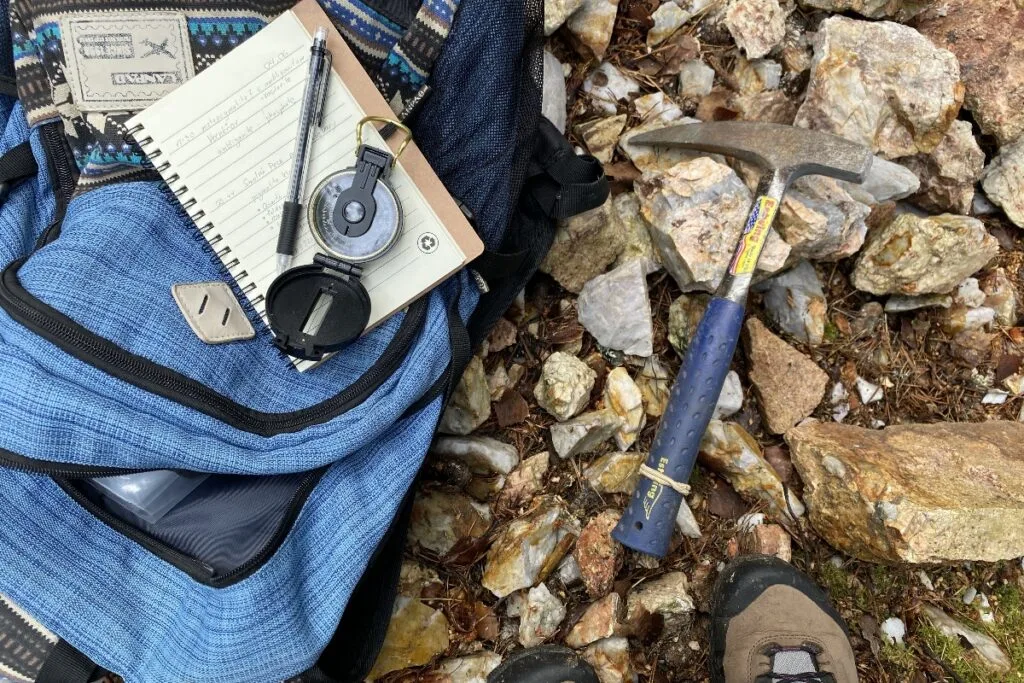
To become a geologist is necessary to complete a formal graduate education. In some states, an additional license is needed for particular geoscience jobs. To become a geologist, you need to obtain at least Bachelor’s degree and gain an experience in fieldwork and various types of technical software.
In modern educational programs, you will not find one specifically for geologists. Geologists are educated as a part of a broad family of Geosciences.
In most cases, Bachelor’s degree in geology is called Geosciences or Earth’s Sciences, Earth and Planetary Sciences, or Earth, Energy and Environmental Studies with one of the following specializations:
- Geology
- Palaeontology and Stratigraphy
- Petrology and Geochemistry
- Mineralogy
- Hydrogeology and Engineering Geology
- Geophysics
These can be arranged differently; for example, Petrology, Geochemistry, and Mineralogy may be together. Or geophysics can be placed with engineering geology.
Depending on the school, gemology, economic geology, petroleum geology, or geoinformatics are sometimes added as independent study programs.
In general, students are taught the basics of all of them during their Bachelor’s studies to choose the most suitable for Master’s or even Doctoral studies later and future careers.
TIP: Getting your kids into rock collecting is not just fun, it is educational. Kids love rocks. Find out the best tips on how to get them started in the article below:
Rock Collecting for Kids: 13 Tips on How to Get Them Started
What Skills Do Geologists Need
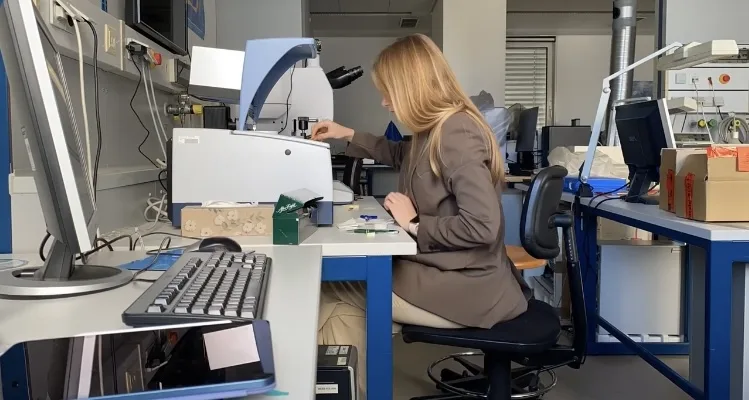
An old joke reveals the diversity of skills a geologist needs. So to become a mathematician, you need to know math. To be a physicist – you must know both math and physics.
To be a chemist, you must know math, physics, and chemistry. To be a biologist, you must know math, physics, chemistry, and biology. And eventually, to be a geologist, you need to know all that.
Modern geologists and geoscientists need to be open-minded nature lovers. The skills required are physics, chemistry, and biology knowledge, readiness to travel, and to do fieldwork. Basic programming for data analysis and languages are advantages to becoming a successful geologist.
On top of that, modern geologists need skills in geographic information systems (GIS), statistics, and data analysis to process data clusters.
Also, depending on specialization, geologists need laboratory skills in sample preparation and analyzing of matter (rocks, fossils, sediments, minerals, water, hydrocarbons).
We would also add some other non-academic skills desirable for geologists. No worries, geologists do not need to be like Bear Grylls with excellent survival skills.
Some basic skills of self-maintenance, independence with a pinch of bravery and responsibility, and a love of nature and outdoor adventures are still an excellent addition to your soft-skills geologist portfolio.
TIP: Geology and geography are very closely related sciences as they both study the same object – the planet Earth. Check out the difference between these two terms in the article below:
Major Similarities & Differences Between Geology & Geography
How Many Years to Become a Geologist
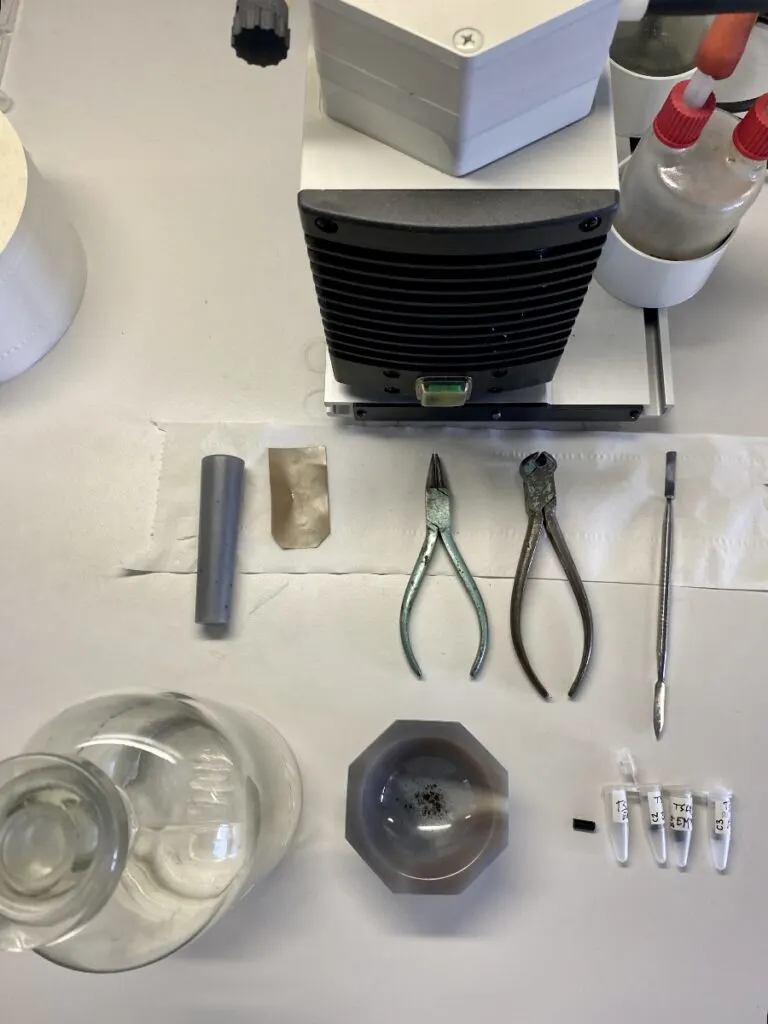
To become a geologist, it takes three to four years to earn a Bachelor’s degree and one or two years to earn a Master’s degree. It takes around five to six years to become a geologist. However, sometimes an additional certificate or license is needed that can be earned in less than a year.
We want to open a curtain for you and list some of the courses that are necessary for a Bachelor’s and Master’s degree obtaining.
Basic introductory courses are usually the following: Introduction to Geology, Chemistry of the Earth and Planets, Coevolution of Earth and Life, Data Science for Geoscience, Introduction to Field Methods, Geomorphology, Formation and Dynamics of Planets, Introduction to the Foundations of Contemporary Geophysics.
Some advanced disciplines can sound like that: Mineralogy, Introduction to Isotope Geochemistry, Introductory Seismology, Soil and Water Chemistry, Physical Hydrogeology, Paleontology, Igneous Processes, and Evolution of Terrestrial Ecosystems.
After each year of Bachelor’s studies, there is a field trip to see the processes discussed with your own eyes in the field. Also, undergraduate studies should be finished with a Bachelor’s thesis, where students present their research on a specific problem using the scientific method.
A Master’s degree usually focuses on a narrow specialization, as discussed before. There can be a Master in Geology, Palaeontology and Stratigraphy, Petrology, Mineralogy, Geochemistry, Hydrogeology, Engineering Geology, Economic Geology, and Geophysics.
TIP: Are geologists licking rocks? Yes, licking rocks and minerals in geology is a common practice to define some kind of minerals and, of course, a bunch of fun. Find out more in the article below:
Licking Rocks in Geology: Why & How (Answered by Geologist)
How Much Does It Cost to Become a Geologist
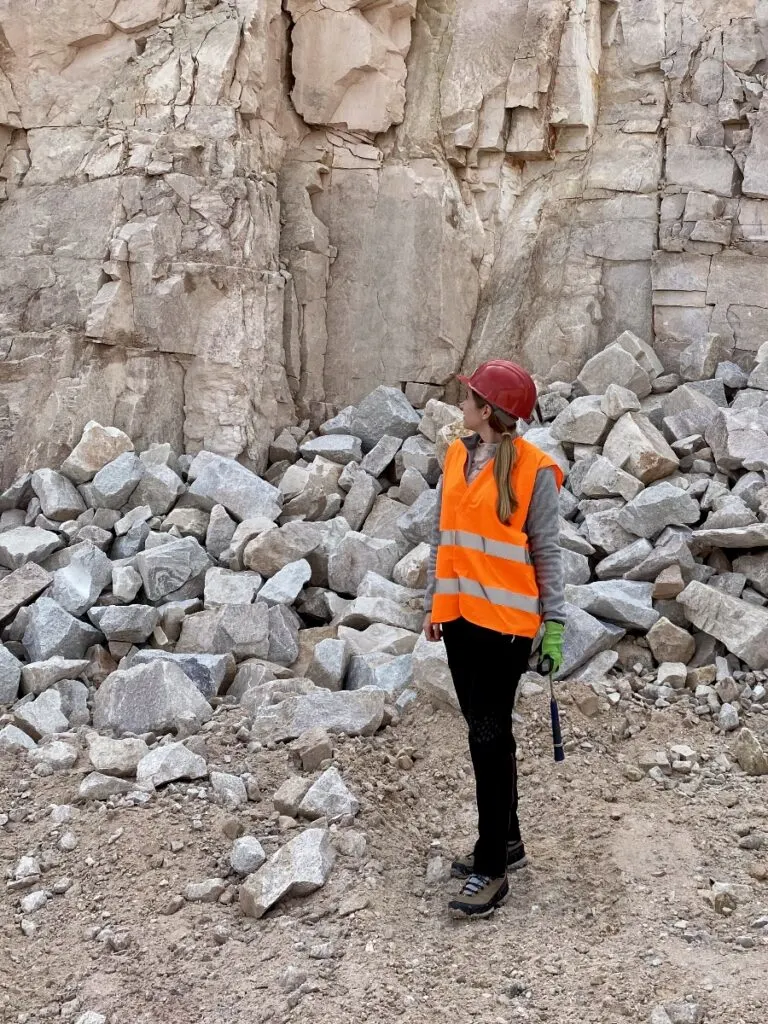
It costs $50,000-180,000 to become a geologist (Bachelor’s + Master’s degree) for Public In-State University, depending on the school in the United States. Public Out-of-State tuition and Private university programs cost from $120,000 to 380,000 for a full Bachelor’s + Master’s degree.
Also, it would be best if you considered additional costs. They are typical for any field of study textbooks, supplies, research expenses, and living expenses, as well as standard for geoscience degrees fieldwork, travel, equipment, proper clothes, some personal tools like hummer and helmet, and probable fees for specific software to work with data obtained during research.
TIP: Overall, geology is fun and not boring because it combines outdoor exploration, scientific discovery, and practical applications. Find out more in the article below:
4 Reasons Why Geology is Not Boring (Explained by Geologist)
Geologist Salary (United States)
Depending on the level and experience, a geologist’s salary can vary. Entry-level (after graduation) salary is $40,000 to 60,000 per year. Experienced geologist salary varies from $60,000 to 100,000 per year, and for senior and specialized geologists, up to $ 150,000 and higher.
Best Geologist Universities in the USA
The best geologist (geoscience, Earth science tuition programs) universities in the USA are:
- Stanford University,
- California Institute of Technology (Caltech),
- Massachusetts Institute of Technology (MIT),
- Harvard University,
- Columbia University,
- Yale University,
- and Princeton University.
Recommendation box: All tools and equipment you need for rockhounding and rock identification* (Amazon links):
1. Estwing Rock Hammer – Light, comfortable, and extremely durable hammer.
2. Estwing Geologist Pick – Classic and the most trusted paleo pick in the world.
3. Finder 12-inch Chisels – Heavy-duty chisels set with hand protection.
4. Mini Handle Shovel – This is a great tool for digging deep in the dirt.
5 Ironclad Utility Work Gloves – Breathable, but they also protect the areas requiring them most.
6. 3M Safety Glasses – Comfortable and efficient goggles for rockhounding.
7. Convoy 8+ UV Light – 365nm UV LED flashlight with a patented glass filter.
8. Wesley’s Jewelers Loupe – High magnification options (30X and 60X) with carrying case.
9. Mohs Hardness Kit – A specially designed kit for rockhounds
*All recommended products are personally tested and regularly used by experts from this website.
How to Become a Geologist without a Degree
Becoming a geologist without a degree is challenging and could have worked in the previous century. Nowadays, formal geoscience education is typically required for geological positions. If a person does not have it, they must be very experienced and professional to compete with other candidates.
To become a geologist without a degree, you need to have substantial self-study education, take many courses, and network with geologists at conferences, meetings, and other activities. The primary skill you need to become a geologist without a degree is to be an experienced field geologist.
To become a geologist without a degree, some essential steps need to be completed:
- Self-study. At-home education incorporates essential textbooks, educational websites, online courses, and modern geological literature like scientific papers, journals, and geological company reports to help you understand the fundamental concepts of geology.
- Field trips and workshops. This is an essential part of becoming a geologist, as you need to recognize, describe, and properly document what you can see in the field, take samples, and make some technical measurements with equipment. You can participate in local geological field trips, workshops, or seminars. Geological societies, museums, or educational institutions may organize these events.
- Practice under supervision. After being theoretically prepared, you can become a volunteer or intern to help experienced geologists and gain actual practice.
- Geological clubs and societies. It’s a good idea to join geological clubs or organizations to meet fellow enthusiasts, share knowledge, engage in discussions about geology, and search for opportunities.
- Geological software. Another good way to become a geologist without a degree is to familiarize yourself with geological software used in the industry for data analysis, mapping, and modeling. Gaining proficiency in these tools can enhance your skills and knowledge.
TIP: Modern geological methods of mineral identification are far more complicated than people used to think. Check out their explanation in the article below:
Modern Methods of Rock & Mineral Identification (by Expert)
Conclusion
Geology is an exciting and diverse job! Theoretically, it combines various disciplines, practically – a true adventure every day.
Geology is a broad term for people whose role in geoscience can be described as environmental, economic, engineering, or marine geologist; mineralogist, volcanologist, geochemist, hydrogeologist, data scientist, etc.
To become a geologist, you need a complete graduate education. It takes three to four years to earn Bachelor’s degree and one or two years to earn a Master’s degree. Sometimes an additional license needs to be approved as a specialist for doing some specific job.
Complete graduate education for geologists (geoscientists) in the United States costs $50,000-180,000, depending on the school. Depending on experience level, geologists’ salary varies from $40,000 for entry-level to 100,000 and higher for senior geologists.
Deep knowledge of natural sciences, including physics, chemistry, biology, and math, a passion for traveling, and a love and appreciation of nature can create a top-level professional geologist.
TIP: Today, geologists use a vast variety of tools, both traditional and simple, as well as high-tech modern equipment. Find out more in the article below:
The Most Common Tools Geologists Use in Labs & on Field Works
